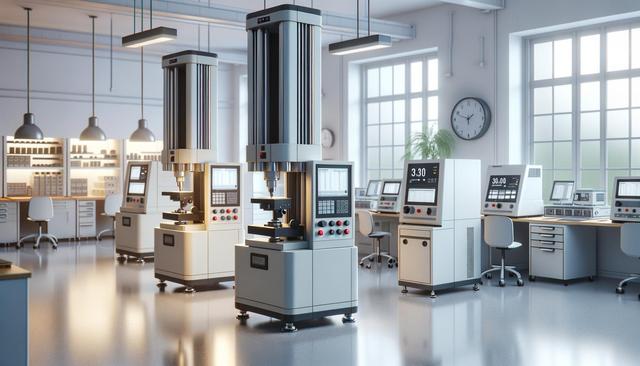What Is a UTM Machine and Why It Matters
A Universal Testing Machine (UTM) is a critical piece of equipment in material testing, designed to evaluate the mechanical properties of various materials including metals, polymers, and composites. These machines are used to perform tension, compression, bending, and other forms of stress tests. As industries place greater emphasis on quality assurance and compliance with material standards, the demand for reliable UTM machines continues to grow. This makes understanding the associated costs essential for laboratories, manufacturers, and educational institutions looking to invest in dependable testing infrastructure.
When selecting a UTM machine, the cost is influenced by several elements such as the testing capacity, software features, automation level, and accessories. Basic models used for educational purposes or light testing are often more affordable, whereas high-capacity systems designed for industrial applications can command significantly higher prices. The precision and versatility of the machine largely determine its price point, making it crucial for buyers to align their choice with specific testing requirements.
Factors That Influence UTM Machine Pricing
Several key factors contribute to the variation in UTM machine cost. Understanding these can help buyers make informed decisions and avoid overspending on features they may not need. Among the most influential aspects are:
- Load capacity: Machines with higher force capacities (e.g., 100 kN or more) are typically more expensive due to the robust components required.
- Control and software systems: Advanced software that enables data analysis, remote monitoring, and custom test configurations adds to the cost.
- Automation features: Automated grips, extensometers, and sample changers increase efficiency but also raise the price.
- Compliance and standards: Machines that meet international testing standards, such as ASTM or ISO, may involve additional certification costs.
Each of these elements can significantly impact the total investment, so budget planning should factor in the cost of necessary add-ons and upgrades, not just the base unit.
Cost Ranges and What to Expect at Each Level
While prices vary based on features and specifications, UTM machines generally fall into a few pricing tiers. For entry-level units, commonly used in academic settings or for basic quality checks, prices can start from around $5,000 to $10,000. These machines typically feature lower load capacities and basic software interfaces. Mid-range machines, suitable for most industrial applications, range from $20,000 to $50,000. They offer more robust construction, better precision, and wider testing capabilities.
For high-end systems, especially those used in aerospace, automotive, or research institutions, costs can exceed $100,000. These machines offer high load capacities, advanced data acquisition systems, and full automation. It’s important to remember that purchase price is just one component; operational costs, such as maintenance, calibration, and software updates, should also be considered when budgeting.
Additional Costs and Long-Term Considerations
Investing in a UTM machine involves more than just the upfront purchase. To ensure optimal performance and longevity, buyers should be aware of additional expenses that may arise over the machine’s lifecycle. These include:
- Calibration services: Regular calibration is essential for accurate results and often requires professional service.
- Maintenance and repairs: Routine servicing, replacement parts, and potential repairs can add to the total cost of ownership.
- Training: Operator training is crucial, especially for machines with complex software or multifunctional capabilities.
- Software licenses and updates: Some manufacturers charge for additional licenses or feature updates, which can be a recurring cost.
By accounting for these factors, organizations can plan for a realistic total investment, ensuring that the equipment continues to deliver reliable results over time.
Making the Right Investment Decision
Choosing the right UTM machine depends heavily on the specific needs of the organization. Before purchasing, it’s important to assess the type of materials being tested, the frequency of tests, and the level of precision required. Consulting with suppliers and requesting demonstrations can provide valuable insights into how different models perform under real-world conditions.
In addition, it’s wise to evaluate after-sales support, warranty terms, and the availability of spare parts. A machine that is slightly more expensive but comes with comprehensive support may offer better long-term value than a cheaper alternative with limited service options. Buyers should also consider scalability—whether the machine can adapt to future testing needs or accommodate upgrades as requirements evolve.
Conclusion: Planning for a Strategic Investment
For laboratories and industries that rely on accurate material testing, understanding the full scope of UTM machine costs is essential. While the initial price can vary widely, evaluating the total cost of ownership—including maintenance, calibration, training, and software—helps ensure an investment that meets both current and future needs. By aligning equipment capabilities with operational goals, organizations can make a strategic choice that supports high-quality outcomes and long-term efficiency in testing processes.




Leave a Reply